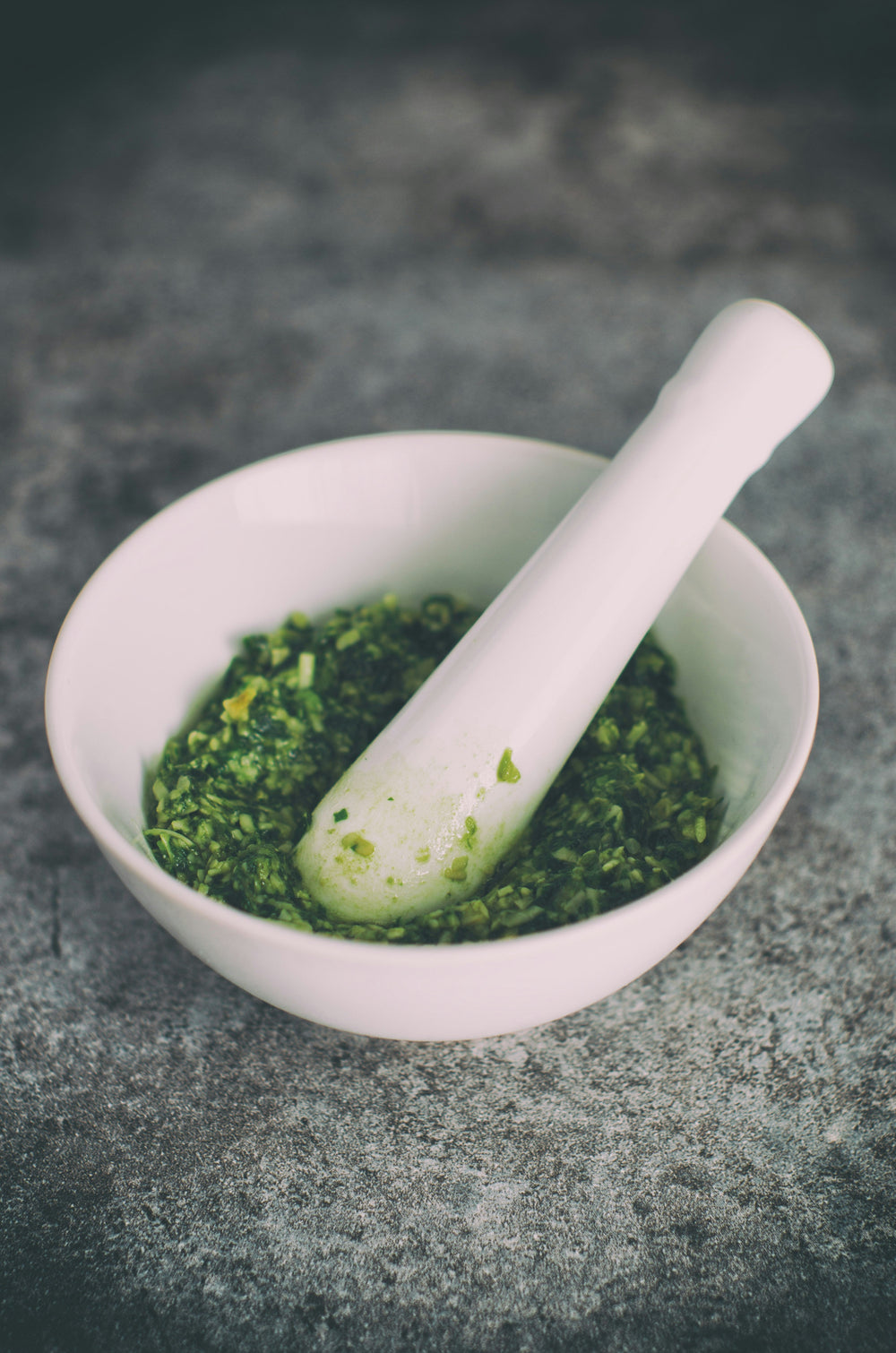sip your way to better gut health: the benefits of tea.
Sip Your Way to Better Gut Health: The Benefits of Tea From a soothing morning ritual to a midday pick-me-up, tea is more than just a drink - it’s packed with compounds that can benefit your body, including your gut. Black tea is the most popular variety, making up nearly 80% of global tea production, with green tea following closely behind. Both of these tea types are known for their unique characteristics due to their varying degrees of fermentation. What Is Good About Them Tea is packed with health-promoting compounds such as polyphenols, alkaloids, amino acids, and minerals. The primary active compounds in tea are polyphenols, particularly flavonoids like catechins. These compounds are known for their strong antioxidant and anti-inflammatory properties, contributing to a wide range of health benefits, from improving cardiovascular health to supporting brain function. Green tea, for example, is rich in catechins, including epigallocatechin-3-gallate (EGCG), which is known for its potent antioxidant effects. Both black and green tea also support gut health by encouraging the growth of beneficial bacteria and inhibiting harmful ones, ultimately promoting a healthier microbiome. Why Is It Good for the Gut Tea, especially green tea, plays a significant role in maintaining gut health. Green tea contains catechins, which have been shown to support gut barrier integrity by regulating the proteins that maintain the structure of the gut wall. This is crucial for preventing harmful substances, such as toxins and bacteria, from entering the bloodstream. Additionally, both black and green tea have been linked to an increase in the production of short-chain fatty acids (SCFAs), which are essential for gut health. SCFAs help regulate oxidative stress, enhance immune function, and support the health of gut cells. Tea has also been shown to promote the growth of beneficial bacteria such as Bifidobacterium and Lactobacillus, which...

Sip Your Way to Better Gut Health: The Benefits of Tea
From a soothing morning ritual to a midday pick-me-up, tea is more than just a drink - it’s packed with compounds that can benefit your body, including your gut. Black tea is the most popular variety, making up nearly 80% of global tea production, with green tea following closely behind. Both of these tea types are known for their unique characteristics due to their varying degrees of fermentation.
What Is Good About Them
Tea is packed with health-promoting compounds such as polyphenols, alkaloids, amino acids, and minerals. The primary active compounds in tea are polyphenols, particularly flavonoids like catechins. These compounds are known for their strong antioxidant and anti-inflammatory properties, contributing to a wide range of health benefits, from improving cardiovascular health to supporting brain function.
Green tea, for example, is rich in catechins, including epigallocatechin-3-gallate (EGCG), which is known for its potent antioxidant effects. Both black and green tea also support gut health by encouraging the growth of beneficial bacteria and inhibiting harmful ones, ultimately promoting a healthier microbiome.
Why Is It Good for the Gut
Tea, especially green tea, plays a significant role in maintaining gut health. Green tea contains catechins, which have been shown to support gut barrier integrity by regulating the proteins that maintain the structure of the gut wall. This is crucial for preventing harmful substances, such as toxins and bacteria, from entering the bloodstream. Additionally, both black and green tea have been linked to an increase in the production of short-chain fatty acids (SCFAs), which are essential for gut health. SCFAs help regulate oxidative stress, enhance immune function, and support the health of gut cells.
Tea has also been shown to promote the growth of beneficial bacteria such as Bifidobacterium and Lactobacillus, which contribute to a healthier gut microbiome. In particular, green tea helps to increase the abundance of these beneficial bacteria, while also inhibiting the growth of harmful species.
What the Studies Are Saying
Research shows that green tea may positively influence gut bacteria - here’s what studies have found.
Study 1: Participants who didn’t usually drink green tea were asked to consume it daily for 10 days, then stop for a week. Researchers tested their gut bacteria before, during, and after the trial.
Key takeaway: Green tea consumption led to an increase in Bifidobacterium, a beneficial gut bacteria linked to digestive health. When participants stopped drinking it, levels declined, suggesting a direct link between green tea and microbiome changes.
Study 2: Participants drank 400mL of green tea daily for two weeks, while researchers monitored their gut bacteria.
Key takeaway: Green tea helped rebalance gut bacteria, increasing levels of SCFA-producing bacteria, which support digestion, immune function, and gut barrier health.
Which One Is Better?
While both black and green tea offer benefits for gut health, green tea stands out for its higher concentration of catechins, particularly EGCG, which has stronger antioxidant and anti-inflammatory properties. Green tea has been linked to a more significant increase in beneficial bacteria, such as Bacteroides, and is particularly effective in supporting gut barrier integrity. On the other hand, black tea, with its more fermented nature, is also beneficial but may have a different impact on the gut microbiome, influencing the overall diversity of gut bacteria.
Both green and black tea support gut health, but green tea’s higher catechin levels make it especially powerful for your microbiome. Whether you sip it for flavour or function, a daily cup might be just what your gut needs.
References
Yuan, X., Long, Y., Ji, Z., Gao, J., Fu, T., Yan, M., Zhang, L., Su, H., Zhang, W., Wen, X., Pu, Z., Chen, H., Wang, Y., Gu, X., Yan, B., Kaliannan, K., & Shao, Z. (2018). Green Tea Liquid Consumption Alters the Human Intestinal and Oral Microbiome. Mol Nutr Food Res, 62(12), e1800178. https://doi.org/10.1002/mnfr.201800178
Jin, J.-S., Touyama, M., Hisada, T., & Benno, Y. (2012). Effects of green tea consumption on human fecal microbiota with special reference to Bifidobacterium species. Microbiol Immunol, 56(11), 729-739. https://doi.org/10.1111/j.1348-0421.2012.00502.x
Pérez-Burillo, S., Navajas-Porras, B., López-Maldonado, A., Hinojosa-Nogueira, D., Pastoriza, S., & Rufián-Henares, J. Á. (2021). Green tea and its relation to human gut microbiome. Molecules, 26(13), 3907. https://doi.org/10.3390/molecules26133907
Zhao, Z., Chen, R., & Ng, K. (2024). Effects of differently processed tea on the gut microbiota. Molecules, 29(17), 4020. https://doi.org/10.3390/molecules29174020
Pérez-Burillo, S., Navajas-Porras, B., López-Maldonado, A., Hinojosa-Nogueira, D., Pastoriza, S., & Rufián-Henares, J. A. (2021). Green tea and its relation to human gut microbiome. Molecules, 26(13), 3907. https://doi.org/10.3390/molecules26133907
Soft, satisfying, and subtly sweet—these breakfast cookies are made to fuel your morning the right way. With fibre-rich oats, plant-based protein, and antioxidant-packed matcha, they’re a gut-friendly grab-and-go option that doesn’t compromise on flavour or function.
Emily's light, gut-friendly crêpes are the perfect balance of fibre, protein, and healthy fats to support digestion and keep you feeling great.
Start your day with a delicious and nutritious breakfast option - Carrot Cake Oats. Filled with fibre diversity to promote healthy digestion.














